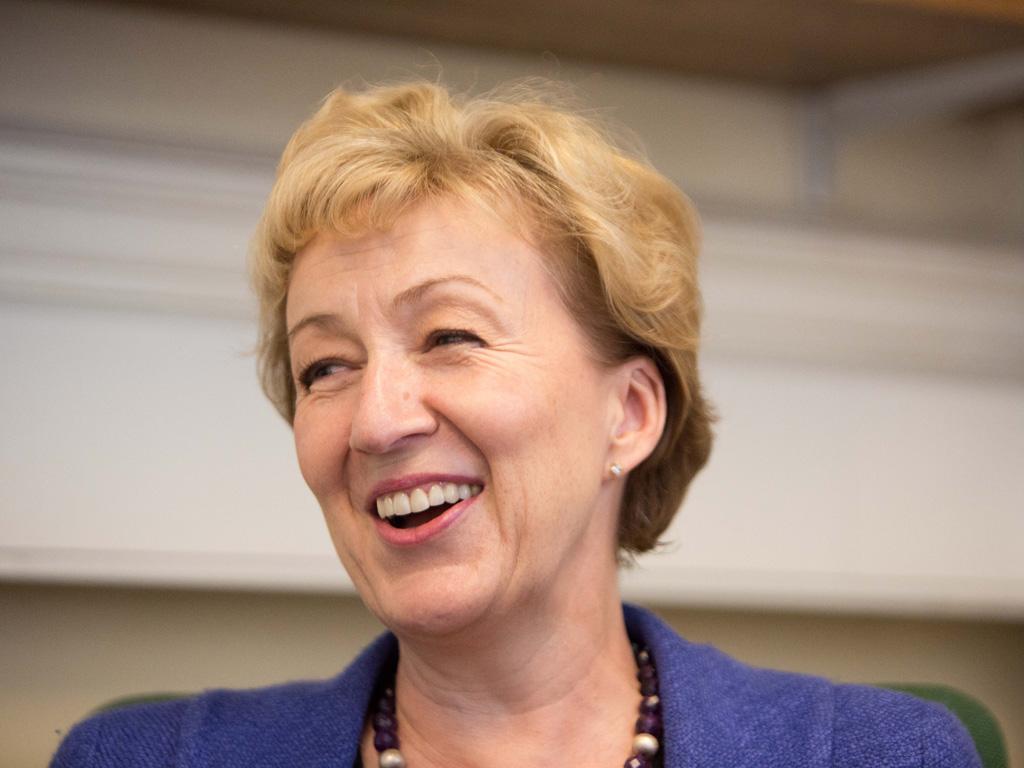Andrea Leadsom is the underdog preparing to fight, but Conservatives need to hear more about her
Tory MPs should not just choose a 'Brexit prime minister', but somebody capable of showing leadership in challenging times

Your support helps us to tell the story
From reproductive rights to climate change to Big Tech, The Independent is on the ground when the story is developing. Whether it's investigating the financials of Elon Musk's pro-Trump PAC or producing our latest documentary, 'The A Word', which shines a light on the American women fighting for reproductive rights, we know how important it is to parse out the facts from the messaging.
At such a critical moment in US history, we need reporters on the ground. Your donation allows us to keep sending journalists to speak to both sides of the story.
The Independent is trusted by Americans across the entire political spectrum. And unlike many other quality news outlets, we choose not to lock Americans out of our reporting and analysis with paywalls. We believe quality journalism should be available to everyone, paid for by those who can afford it.
Your support makes all the difference.Leadership contests in the Conservative Party are anything but predictable. Margaret Thatcher, John Major, William Hague, Iain Duncan Smith and David Cameron were all outsiders who won the race. With Boris Johnson forced out of the current contest by his “friend” Michael Gove, it appears that this political assassination may harm rather than help Mr Gove’s own prospects.
Instead, Angela Leadsom has joined Stephen Crabb in becoming a dark horse who might just come up on the rails, as outsiders again define a Tory contest that more experienced figures were expected to dominate. Mr Crabb, who backed Remain, was quicker out of the starting gate but Ms Leadsom now appears to have some momentum in the battle to emerge as the main challenger to Theresa May, the strong favourite.
Ms Leadsom was one of the stars of the Leave campaign in the EU referendum. Little known outside Westminster, her impressive appearances in two TV debates brought her to a wider audience. But the energy minister (unlike Mr Crabb) is not even in the Cabinet yet; it would be a giant step up to become prime minister.
Ms Leadsom can style herself as the “real world” candidate after 25 years working in financial services. Since becoming an MP in 2010, she has rarely missed an opportunity to compare herself to Margaret Thatcher – which has appeal in her party with a very difficult EU negotiation coming up.
She knows the EU issue inside out, having launched the Fresh Start project in 2011, which looked in detail at every aspect of the UK-EU relationship. Coupling that expertise with being a fresh face, gives her a real chance of picking up the support of MPs who backed Boris and are appalled by Gove’s betrayal.
But being the new kid on the block could also prove a disadvantage, especially in a run-off against Ms May among the Tories’ 125,000 members that will decide this contest. Ms Leadsom is confident in her own ability but untested on the big stage, which showed in a television interview on Sunday, as she tried to explain why she argued only three years ago that Brexit would be a “disaster”.
The novelty factor helped Mr Cameron in 2005 but then the party was choosing a leader of the Opposition, not a prime minister amid a national crisis. The next election was likely to be almost five years away.
May looks a safe bet for today’s turbulent times. But it is not impossible that she will now suffer the curse of the Tory front-runner. If that happens, Ms Leadsom is perhaps the most likely beneficiary. She has certainly earned a hearing and looks to play a very influential role in the next Tory Cabinet, whatever her eventual post.
So Tory members need to know more about her – and her wider policy agenda – before they can make a judgement. They should not just choose a “Brexit prime minister”, but somebody capable of showing leadership across a wide range of issues and challenges.
Perhaps the lesson from the emergence of Ms Leadsom and Mr Crabb is that we should never underestimate the outsider. In an era when old political certainties and party loyalties have fractured since the 2008 financial crisis, the appeal of the underdog is not confined to the Conservatives. The left-winger Bernie Sanders unexpectedly gave Hillary Clinton a fright in the contest to be the Democratic Party candidate for the White House.
Despite starting as the 200-1 outsider, Jeremy Corbyn won a remarkable victory in Labour’s leadership election last year, as party members opted for a breath of fresh air, authenticity and a decisive break with New Labour. Yet his performance as leader, and the turmoil now engulfing the party as his MPs try to topple him, are a reminder that backing the outsider is not without risk.
Join our commenting forum
Join thought-provoking conversations, follow other Independent readers and see their replies
Comments